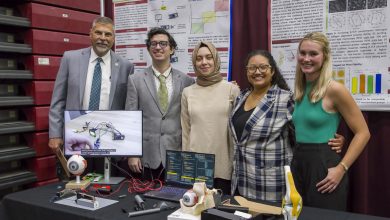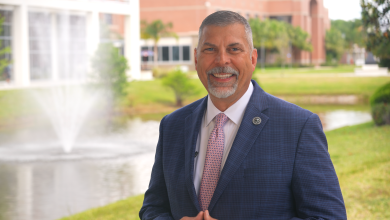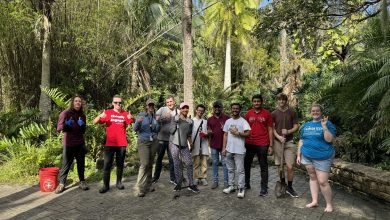Doctoral Dissertation Looks at Post-Military Careers
For 25 years, Lieutenant Colonel James Crook has served in the United States Army. This year, like many others who retire from the armed forces every year, he will be transitioning to a civilian career. But unlike many of the others, Crook used his Ph.D. dissertation to better understand some key facets of that shift.
“Employment Transitions from Active-Duty Army Officer to Civilian: An Exploration of the Knowledge, Skills, and Abilities (KSAs) Possessed by Combat-Experienced, Army Field-Grade Officers,” found that many KSAs are enhanced by service in support of combat operations, and senior officers often share the highest-rated KSAs.
For his research, Crook surveyed 129 Army personnel with the grades of major, lieutenant colonel or colonel. They also had to have served at least 90 days on active duty and at least 90 days in combat.
The survey asked respondents to assess 50 KSAs on a five-point scale, from one (expert) to five (novice). Examples of KSAs are skills in talking to others to convey information effectively, skills in analyzing and organizing technical data, and ability to direct and organize program activities. The results showed that 70 percent of the top 10 KSAs were rated the same in all three ranks. For lieutenant colonel and colonel, the top two ranks, 90 percent of them were rated the same.
The goal of this research is to showcase the abilities veterans have that can transfer into civilian workplaces. While the veteran unemployment was 2.5 percent in January, according to the U.S. Department of Labor, and that was an improvement from 3.4 percent in January 2022, there has been a push in recent years for employers to consider veterans more, a cause championed by organizations such as Hiring Our Heroes.
“If a transitioning senior military member can look at this and go, ‘Oh, yeah, that’s me. I have those skills. I can add those to my resume, and I can explain those,’ a hiring manager can also look at my study and say, ‘Nine out of 10 officers in this grade possess these skills. I’m going to assume that they have those skillsets, or I’m going to try to pull that out of them because the study does show that,’” Crook said. “Transitioning service members can improve their resumes and articulate some of the knowledge, skills and abilities that were found in the study, and the hiring managers can preempt those conversations knowing that they most likely have those skills.”
For his dissertation, Crook worked with Bisk College of Business associate professor Ivonne Delgado-Perez, Ph.D. Wanting to focus on transitioning veterans given the high number of them resulting from decades of war, Crook and Delgado-Perez felt the study came at a great time. While there was a lot of transition data on junior soldier transitions, Crook wanted to look at the career transition of higher-ranking officers.
Where there’s very little data or no data is on senior-level transitions, so the 20-year full career transitioning service member,” he said. “I looked at officers who were transitioning because there was a gap in the literature at that rank.”
In addition to serving as a study for employers and outgoing military members, the study may also show the importance of college education in the military and its impact on KSAs. Of the 129 surveys, 93 percent had schooling above a bachelor’s degree, 80 percent had a master’s degree, 11 percent had doctoral degrees, and 2 percent had a professional degree, such as a law degree.
The military has provided so many opportunities for Crook. He was able to further his education through the military and has learned skills that will transfer into a new workplace once he leaves his military one. Now Crook is looking to assist fellow service personnel and the companies that will employ them when they retire.
“It’s incredibly rewarding for me being a human resources officer in the Army, and now being able to add to the body of knowledge,” he said. “The biggest thing with the doctoral degree is your dissertation must add to the body of knowledge that’s out there. I believe this study adds to the body of knowledge and enhances my career field of human resources. As I transition from a lifelong career in the Army, I can use the information within this study to better transition myself to the next opportunity.”





